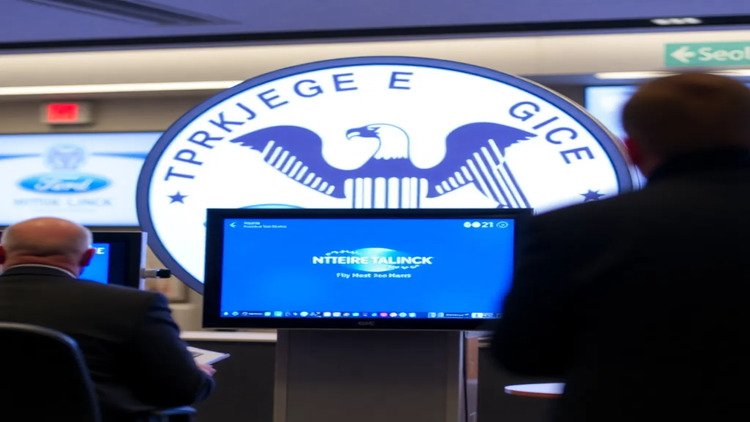SEC Faces Criticism from Commissioners Over FlyFish NFT Case
The SEC FlyFish NFT case centers around the U.S. Securities and Exchange Commission's (SEC) enforcement action against Flyfish Club, which resulted in a $750,000 settlement over the sale of unregistered NFTs

The U.S. Securities and Exchange Commission (SEC) is facing significant criticism from its own commissioners regarding the recent $750,000 settlement with Flyfish Club over the sale of unregistered NFTs. Commissioners Hester Peirce and Mark Uyeda have publicly expressed their discontent, arguing that the NFTs should be viewed as a form of membership rather than securities, which should exempt them from regulatory scrutiny.
Key Details:
-
The SEC issued a cease-and-desist order on September 16, asserting that the Flyfish NFTs constituted an unregistered sale of crypto asset securities, generating around $14.8 million in revenue through the sale of 1,600 NFTs.
-
These NFTs provide holders with access to a high-end restaurant in Manhattan, set to open this month.
-
The SEC's enforcement actions are grounded in the Howey test, a legal framework used to determine if transactions qualify as investment contracts under securities laws. The SEC claims the Flyfish NFTs meet all criteria of this test.
-
Although Flyfish Club did not admit guilt in the settlement, it agreed to destroy any remaining NFTs and refrain from collecting royalties on future secondary sales.
Commissioners' Response
-
Peirce and Uyeda, known for their pro-crypto stance, criticized the SEC's approach, suggesting that the enforcement action is part of a broader trend of targeting NFT projects, including notable cases like Impact Theory and Stoner Cats 2.
-
The ongoing regulatory pressure has prompted artists Brian Frye and Jonathan Mann to file a lawsuit against the SEC, seeking clarity on whether NFTs created by artists require registration before public sale.
The Flyfish Club case underscores the ongoing debate surrounding NFT regulation and the internal tensions within the SEC as it navigates the balance between fostering innovation and ensuring investor protection. The U.S. Securities and Exchange Commission (SEC) is under fire from its own commissioners over a recent $750,000 settlement with Flyfish Club concerning the sale of unregistered NFTs. Commissioners Hester Peirce and Mark Uyeda have voiced their concerns, arguing that these NFTs should be classified as a form of membership rather than securities, which would exempt them from regulatory oversight.
Key Details:
-
On September 16, the SEC issued a cease-and-desist order, claiming that the Flyfish NFTs represented an unregistered sale of crypto asset securities, which generated approximately $14.8 million from the sale of 1,600 NFTs.
-
The NFTs grant holders access to an upscale restaurant in Manhattan, scheduled to open this month.
-
The SEC's enforcement actions rely on the Howey test, a legal standard used to determine if transactions qualify as investment contracts under securities laws. The SEC contends that the Flyfish NFTs fulfill all criteria of this test.
-
While Flyfish Club did not admit to any wrongdoing in the settlement, it agreed to destroy any remaining NFTs and will not collect royalties on future secondary sales.
Commissioners' Response:
-
Peirce and Uyeda, who are known for their supportive stance on crypto, criticized the SEC's actions, suggesting that this enforcement is part of a larger trend targeting NFT projects, including high-profile cases like Impact Theory and Stoner Cats 2.
-
The increasing regulatory scrutiny has led artists Brian Frye and Jonathan Mann to file a lawsuit against the SEC, seeking clarification on whether NFTs created by artists need to be registered before being sold to the public.
The Flyfish Club case highlights the ongoing discussion about NFT regulation and the internal conflicts within the SEC as it attempts to balance innovation with investor protection.
FAQ:
1. What is the FlyFish NFT case?
The FlyFish NFT case involves the U.S. Securities and Exchange Commission (SEC) settling with Flyfish Club for $750,000 over the sale of unregistered NFTs. The SEC claimed that these NFTs constituted unregistered securities, generating approximately $14.8 million from the sale of 1,600 NFTs.
2. Why did the SEC take action against Flyfish Club?
The SEC's action was based on the assertion that the Flyfish NFTs met the criteria of the Howey test, which determines whether a transaction qualifies as an investment contract under securities laws. The SEC argued that the NFTs were sold as securities and therefore required registration.
3. What are the implications of the settlement?
As part of the settlement, Flyfish Club did not admit to any wrongdoing but agreed to destroy any remaining NFTs and will not collect royalties on future secondary sales. This case raises questions about the regulatory landscape for NFTs and how they are classified.
4. What do the commissioners think about the SEC's decision?
Commissioners Hester Peirce and Mark Uyeda have criticized the SEC's approach, arguing that the Flyfish NFTs should be considered a form of membership rather than securities. They believe this enforcement action is part of a broader trend of targeting NFT projects.
5. What is the Howey test?
The Howey test is a legal standard used to determine whether certain transactions qualify as investment contracts under U.S. securities laws. It assesses whether an investment of money is made in a common enterprise with the expectation of profits derived from the efforts of others.
6. Are NFTs generally considered securities?
The classification of NFTs as securities is still a matter of debate. While some NFTs may meet the criteria of securities under the Howey test, others may not, especially if they are sold as collectibles or provide utility rather than investment returns.
7. What actions are artists taking in response to the SEC's regulations?
In light of increasing regulatory scrutiny, artists Brian Frye and Jonathan Mann have filed a lawsuit against the SEC, seeking clarity on whether NFTs created by artists need to be registered before being sold to the public.
8. How does this case affect the future of NFTs?
The FlyFish case highlights the ongoing uncertainty in the regulatory environment for NFTs. It may lead to more stringent regulations and enforcement actions, impacting how NFT projects are developed and marketed in the future.
9. Where can I find more information about the SEC's stance on NFTs?
For more information, you can visit the SEC's official website or follow updates from reputable news sources covering cryptocurrency and regulatory developments.
What's Your Reaction?













